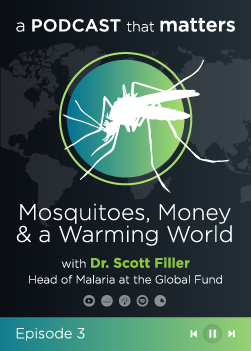
Validating and further developing indicators for soil health and functions
Details
Description
Call Updates
Apr 1, 2022 3:15:22 PM
HORIZON-MISS-2021-SOIL-02 call was closed on 24th March 2022. 40 proposals have been submitted in response to this call. The breakdown per topic is indicated below.
- HORIZON-MISS-2021-SOIL-02-02: 6
The evaluation results are expected to be communicated to applicants in June 2022.
Dec 22, 2021 12:00:11 AM
The submission session is now available for: HORIZON-MISS-2021-SOIL-02-02(HORIZON-RIA)
Validating and further developing indicators for soil health and functions
TOPIC ID: HORIZON-MISS-2021-SOIL-02-02
Programme: Horizon Europe Framework Programme (HORIZON)
Call: Research and Innovation and other actions to support the implementation of a mission in the area of Soil health and Food (HORIZON-MISS-2021-SOIL-02)
Type of action: HORIZON-RIA HORIZON Research and Innovation Actions
Type of MGA: HORIZON Action Grant Budget-Based [HORIZON-AG]
Deadline model: single-stage
Planned opening date: 22 December 2021
Deadline date: 24 March 2022 17:00:00 Brussels time
Topic description
Project results are expected to contribute to all of the following expected outcomes:
- progress towards a harmonised and cost-effective framework for measuring soil health and for developing a soil health index, based on a widely agreed definition of soil health. In the long term, results may support a harmonised soil monitoring and reporting in Europe, as aimed for by the new EU Soil Strategy;
- significantly improved capacities for soil health monitoring and for assessing the effects of management practices and policy measures based on a set of robust set of indicators for soil health (state and change) and of proxies that are applicable to various land uses;
- support to policy development and to the creation of incentives for sustainable soil management through increased evidence on the links between soil health, soil functions and ecosystem services.
A priority for soil monitoring concerns the development, harmonization, reporting and scaling of robust indicators to establish the status and changes in soil health. In turn, these indicators determine the operational aspects of the monitoring system in terms of sampling framework, sample collection and preservation, laboratory analysis and temporal aspects.
The selected project will help develop and implement a harmonised reporting structure at EU, national and local levels for soil health. More specifically, activities will
- test the eight indicators proposed in the mission implementation plan against their suitability to measure in a reliable way the status and changes in soil health, in particular in relation to progress towards the mission’s specific objectives;
- identify alternative indicators where the ones proposed in the implementation plan of the Soil Mission do not prove to be appropriate (e.g. sensitivity to change, critical thresholds, response time, feasibility of pan-EU operation)[1]. The indicators recommended (be it the ones indicated in the implementation plan or alternative ones) should be measurable, realistic (e.g. easy to use in particular for farmers and foresters, urban planners), unambiguous and scalable;
- develop a methodology to combine proposed indicators into a coherent soil health index;
- identify proxies for soil health, which are “easier” to monitor or more reactive to change. These "next generation indicators" could be based for example on observable land use and soil management or on data on the uptake of practices rather than direct measurements of soil properties;
- demonstrate the link between the proposed soil indicators, soil functions and ecosystems services supported by soils (taking into account the various types of soils and land uses);
- harmonize and benchmark the proposed indicators for a range of soil types, land uses and climate zones in the EU and Associated Countries and define the acceptable limits or thresholds;
- update indicators as a result of feedback following monitoring campaigns or data inputs;
- develop recommendations for an integrated sampling framework including measuring frequency and density to be implemented in the upcoming LUCAS campaign (planned for 2025/2026) and available for policy implementation (e.g. related to EU-wide soil condition assessments, registers for contaminated sites, LULUCF greenhouse as inventories);
- support the development of a Soil Health Dashboard under the EU Soil Observatory.
In carrying out activities, due account should be taken of the potential of Earth Observation and digital technologies (including Artificial Intelligence) for soil monitoring (see also eligibility conditions).
Activities should be undertaken in close cooperation with the European Commission’s Joint Research Centre, the European Environment Agency and major R&I initiatives such as the European Joint Programme EJP Soil. The JRC’s contribution is particularly relevant in view of further developing LUCAS Soil and the Soil Health Dashboard under the European Soil Observatory.



